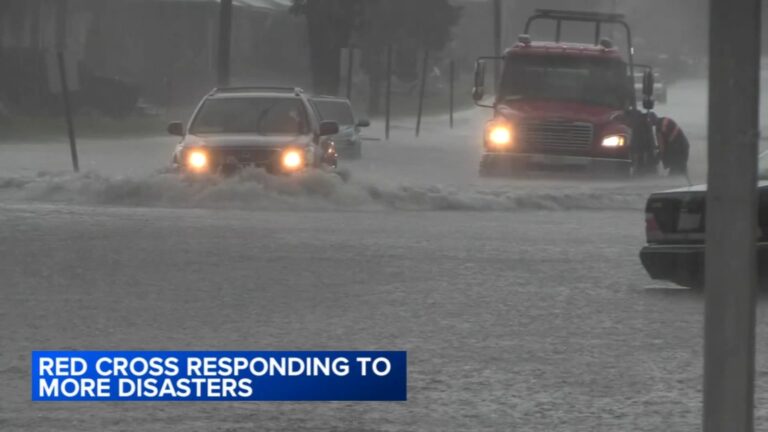CHICAGO (WLS) — A startling report from the American Red Cross reveals a dramatic increase in severe weather disasters over the past decade.
This comes as the UN Secretary-General said this week that the world is on the “highway to climate hell”.
ABC7 Chicago is currently streaming 24/7. Click here to watch
“This year’s string of disasters was a devastating start, particularly the swarm of tornadoes. Have you seen on the news the swarms of tornadoes and severe weather rolling across the United States? From the Midwest to the Southeast, we saw these disasters continue relentlessly,” said Trevor Riggen, director of humanitarian services for the American Red Cross.
Riggen said the United States is responding to twice as many disasters as it was just a decade ago.
“We’re launching major relief missions across the country every 10 to 12 days. When I joined the Red Cross 18 years ago, we were launching relief missions every 30 days. And the data proves it. Disasters are increasing, they’re becoming more intense and they’re affecting more people,” Riggen said.
Chicago experienced a number of weather-related disasters last summer, from severe flooding to extreme heat and air pollution.
More severe weather is expected as the world has experienced unprecedented heatwaves over the past 12 months, according to international weather observers.
“Big events like hurricanes, heat waves and flash floods certainly have a direct link to climate change,” said Scott Collis, an atmospheric scientist at Argonne National Laboratory.
Collis is part of Chicago’s urban field lab, Community Research on Climate and Urban Science. They’re installing advanced sensors in neighborhoods across the city to monitor how climate change affects temperature and weather at the local level. They’re also testing solutions like painting roofs white to reduce heat.
“Not only will we see hotter summers, but we’ll also see more heat waves and more heat-related deaths than tornadoes,” Collis said. “The floodwaters will be transported through manmade systems, which will lead to poor air quality and contribute to a number of other issues across the region, including wildfires, severely impacting our most vulnerable communities.”
Copyright © 2024 WLS-TV. All rights reserved.

